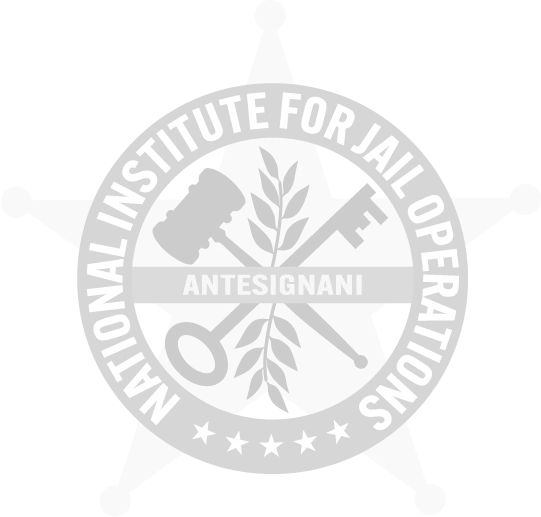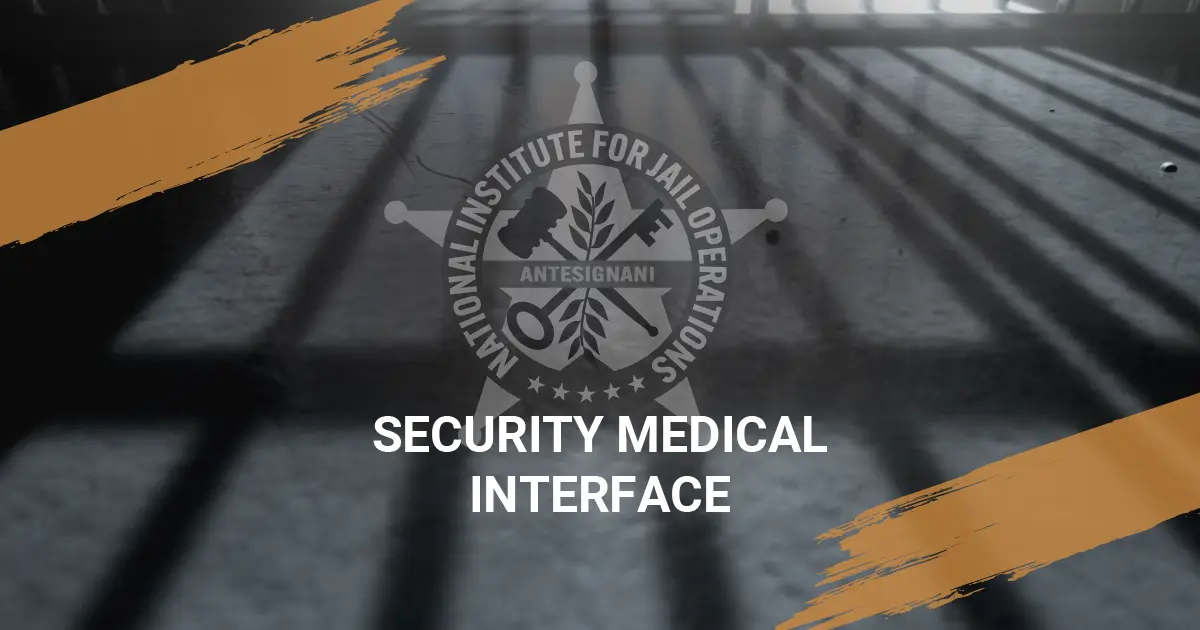by Mike Haley, Ph.D.
Chief Deputy, Washington Parish Sheriff’s Office
While serving as Commissioner of Corrections, and later as Warden of a large urban jail, I negotiated inmate health care contracts with private providers and then worked closely with those providers as they integrated their services into the overall scheme of corrections. It was always a challenge, especially in the jail setting, to educate both the security staff and the medical provider of the importance of working together as a team. After retiring from the Sheriff’s Office in 2009, I entered the private sector working for an inmate health care provider (but not one with whom I had negotiated previous contracts).
As I travel around, meeting with and training both medical and security personnel, I see too many situations where security and medical are not on the same page, are not cooperating to achieve a common goal. This is not good as too often it pits the security staff against the provider. The only one who benefits from such a “head butting” scenario is the inmate who is quick to recognize conflict, encourage it and capitalize on it to his/her benefit. All too often, the “head butting” is clearly defined during litigation.
When I think of the importance of security and medical working together, I am reminded of the quote that is attributed to the inimitable Babe Ruth who supposedly said, “The way a team plays as a whole determines its success. You may have the greatest bunch of individual stars in the world, but if they don’t play together, the club won’t be worth a dime.” Whether or not Babe Ruth actually uttered these words, the fact remains that they are true. The best security professionals and the best medical professionals will never achieve a common goal if they are not playing (working) together.
It is very important for both security and medical to recognize three important things. First, they share common legal and operational obligations. If these obligations are not met in unison,the two parties may find themselves in an adversarial positive inside a courtroom. Next, good security is enhanced by good inmate medical care. Third, good inmate medical care is enhanced by good security.
Insofar as medical care for inmates is concerned, the right of the inmate to receive medical care and the duty of the jail to provide medical care is guaranteed by the Constitution. The inmate is entitled to receive medical care prescribed and provided by medical professionals. At the same time, the jail staff is mandated to provide appropriate access to medical care. The route of access may vary from jail to jail, but the jail must provide access and take no steps to deny, delay or block an inmate’s access to medical care. This provides a simple equation; namely, the provider can’t provide if the inmate is not available and the inmate will not be available if the jail does not provide access. The simplicity of it all is that security and medical must work together, as a team, if the legal duty is to be met.
Security’s obligation to the inmate begins at intake and continues through classification, housing assignment and providing a system for access to medical care. The system of access must include the following:
- A system for the inmate to request medical care
- A system to forward written requests to medical staff without undue delay
- A system to escort the inmate to the medical unit or provider
- A system to supervise the inmate while he/she is in the medical unit or at the office of the medical provider
- A system to escort the inmate back to the housing unit
These steps must be created and managed so that security can cooperate with medical without jeopardizing security.
Medical’s obligation to the inmate also begins at intake and continues through classification, housing assignment and providing a system for access to medical care. The system of access must include the following:
- Qualified medical professionals
- Available medical professionals
- Responsive medical professionals
- Timely medical responses
- Appropriate medical follow-up
These elements must be created and managed so that medical can cooperate with security without jeopardizing medical services.
It is essential that security and medical engage in regular and systematic communication. Security must have an open door policy for medical staff and medical must have an open door policy for security staff. Security staff should be present during medical meetings and medical staff should be present during security meetings. After all, both are on the same team.
Security and medical must realize that there is common ground and the driving forces are the same for both. The driving forces include:
- Legal obligations
- Professional obligations
- Moral obligations
In order to meet these obligations, there must be a co-dependent relationship between security and medical without any professional struggles. A few simple strategies are necessary to accomplish the goal:
- No separate territories
- Mutual respect for the abilities, responsibilities and limitations of each
- An acknowledgement that security and medical are most effective when delivered by professionals acting in unison with each other
- Communication – both written and oral – there must be a two way flow of information
- Accurate and timely documentation of all medical requests, procedures and events
In the event of a critical incident (i.e. suicide or attempt), there must be a debriefing which includes both security and medical personnel. An honest discussion about what was done wrong, what was done correctly and what needs to be done for future events will help to maintain security and medical on the same team and create a more defensible posture for each.
Remember:
- The medical program in the jail can be no stronger than security allows it to be.
- The security program in the jail can be weakened or strengthened by the quality of medical care delivered to inmates.
- There can be only one team – not a security team – not a medical team – only one facility team
The concept of a proper security/medical interface is perhaps best summed up by Tony Dungy in his book The Mentor Leader, page 154. Paraphrasing Ecclesiastes 4:12, Coach Dungy writes,“A person standing alone can be attacked and defeated, but two can stand back-to-back and conquer.”
If security and medical are seen as standing alone and not in unison,inmates will attack and defeat the system. After all, that is their job. It is essential that security and medical do their job better than inmates do their job. A proper security/medical interface is a good sign of a job well done. Remember that Babe Ruth told us that we aren’t worth a dime if we don’t play together as a team.
Get on the team! Life will be easier.

MIKE-HALEY
Mike Haley is Chief Criminal Deputy for the Washington Parish, Louisiana, Sheriff’s Office. He has managed both local and state corrections facilities and has held several positions, including Director of Jail Services for the Alabama Sheriffs’ Association and Commissioner of Corrections for the State of Alabama. In addition, he has served as a trainer and jail litigation expert witness in several states, is a NIJO instructor and a member of the NIJO Jail Advisory Council (JAC). Mike earned a Ph.D. degree in Psychology and Counseling and began his corrections career in New Orleans at the Orleans Parish Prison.



